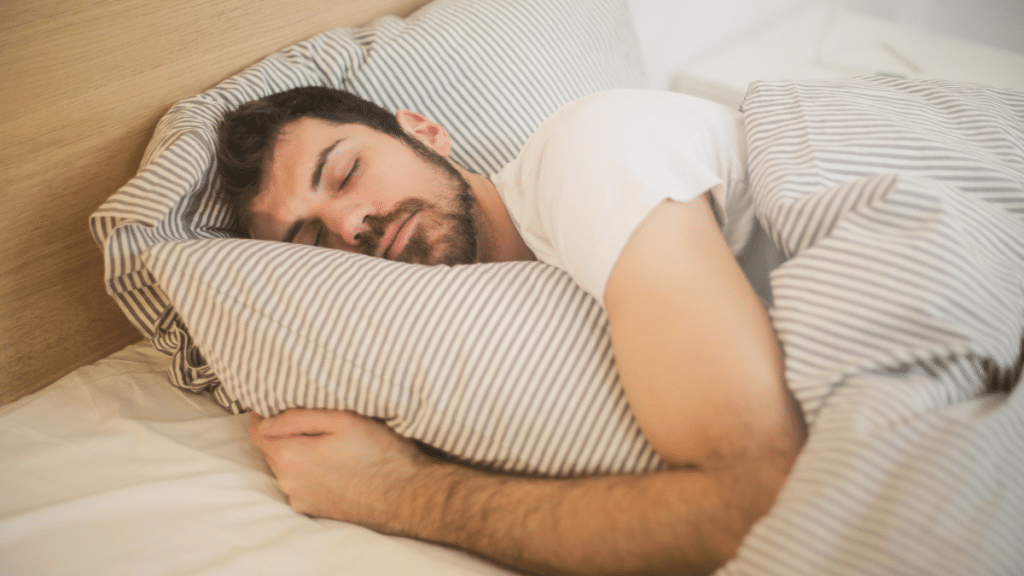Physical and mental health depend on a decent night’s sleep. Unfortunately, millions of people struggle to fall or stay asleep due to stress, anxiety, poor routines, or modern habits like excessive screen time. Over time, sleep deprivation can affect concentration, mood, immunity, and even long-term health. If you’ve tried everything from adjusting your schedule to cutting caffeine and still find yourself tossing and turning, sleeping aids may be a helpful solution. In this article, we’ll break down how sleeping aids work, the types available, and how to use them wisely to support better rest. For those ready to explore options, click here to find helpful sleep support tools and advice.
Understanding Sleep and Why It’s So Important
Sleep is when your body and brain recover. During sleep, your body repairs tissues, processes memories, and balances hormones. Missing out on deep, restful sleep regularly can lead to serious health issues, such as heart disease, obesity, and depression. For adults, most health professionals recommend 7–9 hours of quality sleep per night. But with daily pressures, digital distractions, and irregular routines, many fall short.
Sleep aids can help fill the gap by calming the body and mind, promoting better sleep cycles, and supporting consistent rest when used properly.
Common Reasons People Struggle with Sleep
Sleep difficulties are more common than many people realize. Some of the most frequent causes include:
- Stress or anxiety
- Poor sleep hygiene (e.g., irregular sleep schedule
- Blue light exposure from excessive screen time before bed
- Chronic pain or health conditions
- Noise or light disturbances
- Jet lag or shift work
If any of these factors sound familiar, you’re not alone. Addressing the root cause is essential, but sometimes a short-term boost from sleeping aids can make the difference between another restless night and finally getting the rest your body needs.
What Are Sleeping Aids?
Sleeping aids are products or techniques that help promote relaxation and support better sleep. They can be natural, over-the-counter (OTC), or prescription-based, depending on your needs and health condition.
These include:
- Natural supplements like melatonin, valerian root, or magnesium
- OTC medications such as antihistamines (e.g., diphenhydramine)
- Prescription medications for chronic insomnia or anxiety
- Non-medical tools, like weighted blankets, white noise machines, and blackout curtains
While they each work differently, their goal is the same: to help the body relax, ease anxiety, and encourage a deeper, longer-lasting sleep cycle.
Natural Supplements: A Gentle First Step
If you’re new to sleep aids, natural supplements are a safe and gentle place to start. Melatonin is one of the most popular options. It’s a hormone your body naturally produces in response to darkness, signaling that it’s time to sleep. Taking melatonin as a supplement can help reset your internal clock, especially if your sleep is disrupted by travel, shift work, or irregular routines.
Other natural aids like chamomile, valerian root, and L-theanine can also promote calmness. These are often available as teas, capsules, or gummies. For curated supplement options and expert sleep tips, click here to explore trusted sleep support products.
Over-the-Counter and Prescription Options
Sometimes, natural remedies aren’t enough. Over-the-counter sleep aids, often made with antihistamines, can help with occasional sleeplessness. These are easy to access, but should not be used long-term without speaking to a doctor, as they may lead to grogginess or tolerance.
Prescription medications are stronger and typically recommended for people with chronic insomnia or anxiety-related sleep issues. These must be prescribed by a medical professional and should be monitored closely to avoid dependency.
Always consult with your doctor before starting any new sleep medication, especially if you take other prescriptions or have underlying health conditions.
The Role of Sleep Hygiene and Habits
Even the most effective sleep aid won’t help if poor habits are interfering with your rest. One of the biggest culprits is screen time before bed. Blue light from phones, tablets, and TVs can suppress melatonin production, making it harder for your body to wind down.
To improve sleep naturally and support the use of sleep aids, try:
- Sticking to a regular sleep schedule
- Limiting caffeine and alcohol in the evening
- At least one hour before bed, turn off screens.
- Creating a dark, cool, and quiet sleep environment
- Using your bed only for sleep (and intimacy) to strengthen mental association
These habits, combined with the right sleeping aid, can dramatically improve sleep quality over time.
Using Sleeping Aids Safely and Effectively
To get the most benefit from sleep aids, follow these tips:
- Start with the lowest effective dose
- Don’t rely on them every night—aim for occasional use
- Avoid mixing sleep aids with alcohol or other sedatives
- Follow the instructions carefully
- Create a bedtime routine that supports winding down naturally
Sleep aids should complement—not replace—healthy habits. The goal is to reset your routine, not become dependent on a product long-term.
When to See a Doctor
If sleep problems persist for more than a few weeks, or if you experience serious issues like waking up gasping for air, constant fatigue despite sleeping, or severe anxiety, it’s time to speak with a healthcare professional. There may be an underlying sleep disorder like sleep apnea or chronic insomnia that needs a targeted approach.
A doctor can help guide you toward the most appropriate treatment, whether that involves medication, therapy, or lifestyle adjustments.
Final Thoughts: Better Sleep Is Within Reach
Poor sleep affects more than just how you feel—it can impact your work, relationships, and overall health. Sleeping aids, when used responsibly, can be powerful tools to help you get the rest you need. From natural supplements to professional treatments, there are many options available to support better sleep.
